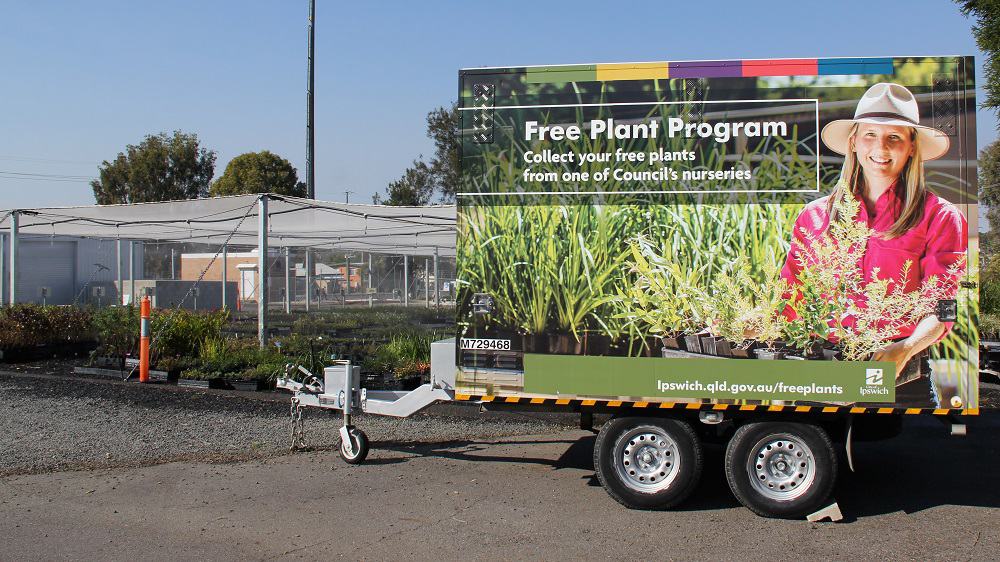
Ipswich City Council says the risk to the public and council staff from Legionella bacteria is extremely low and Queensland Government health and safety experts are satisfied with council’s response and actions.
This follows concerns after two nursery staff members tested positive to Legionella.
Council treats any form of work-related illness seriously, which is why council sought advice from State public health experts and carried out extensive testing to ensure all avenues of a possible source of Legionella bacteria were explored.
Council’s Works, Parks and Recreation Chief Operating Officer Bryce Hines said it is important to note there are two forms of Legionairres Disease – one which can come from water bacteria and another from potting mix – Legionella longbeachae, which is common in the soil.
Exposure to the dust or aeresols associated with potting mix may present a risk to workers, as is the case with any nursery which uses potting mix.
In fact, any plant which anybody takes home from any nursery anywhere – providing it contains potting mix – carries the same very low and negligible risk of exposure to L. longbeachae.
All actions taken by council to mitigate the risk of Legionella among staff are consistent with State Government health advice, and council continues to implement the same measures which put workers’ safety and health at the highest level of priority and concern.
The matter was actually reported to two State Government departments. Initially, it was reported to the Division of Workplace Health and Safety as council is legally obligated to do when a matter is reported by staff. The department was satisfied with council’s course of action and response.
However, about a month ago – to further reassure staff that the public health risk was negligible – council sought independent advice and a review from Queensland Health.
It was important to council to take a precautionary approach, despite confirmation that there was no way of knowing exposure to legionella occurred in the workplace.
Advice from Queensland Health arrived on October 18 and 19.
Independent testing for the waterborne Legionella bacteria at various locations showed it was either not detected or at an extremely low level.
There was one low level result from a tank at Queens Park. The water was treated and disposed of immediately.
It should be noted that the officers tested positive for the soil borne version. No testing was carried out for the soil borne bacteria as it is extremely common and likely to be found in the potting mix.
Council is always working hard to improve community consultation and collaboration and acknowledges this as an area it is focussing on making stronger in the future.
The advice from Queensland Health was as follows:
Generally, the exposure risk from L. longbeachae to the public when collecting pot plants (as part of the council’s plant program) would be negligible and the Public Health Unit supports the approach taken by council.
This is because the public would not be directly exposed to the potting mix that the plants are contained in and no potting of plants is located in the immediate public access area. Adequate dust minimisation measures (like the sprinkling while the public are not present) at the plant distribution points occurs and further reduces the potting mix becoming dust.
… as a Public Health response I would recommend against screening all staff for exposure to Legionella as results would not contribute anything meaningful to a response and are very difficult to interpret in the absence of illness. The blood test (serology) measures a person’s immune response to the organism, so if a person has ever been exposed to Legionella the test will very likely be positive and stay positive.
A Qld study in 1992 showed a positive blood test for Legionella longbeachae in 43.3 per cent of potting media industry workers and 41.7 per cent of blood donors. Results for Legionella pneumophila varies by geography and population throughout Australia and ranged from 21.5 per cent in non-Indigenous urban populations up to 77 per cent in remote Indigenous populations.
Legionella species are very common in the environment but have a low attack rate, which means that not many people who are exposed actually become unwell or they may have a mild illness.
Those who become seriously unwell are most often over 50 years of age and/or have risk factors like cigarette smoking or a weak immune system (e.g. those with a chronic medical condition such as lung disease, kidney disease, diabetes, cancer or HIV).

